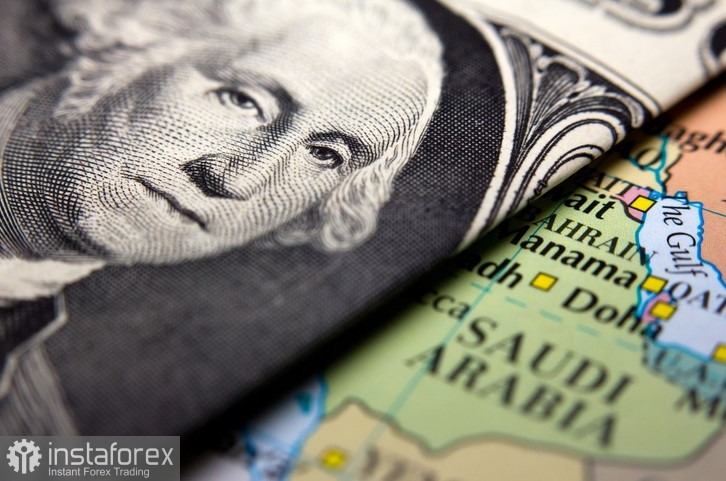
Over the past 50 years, the established financial world order is now shifting to a new and unknown paradigm. Last Sunday, the petrodollar agreement between Saudi Arabia and the United States expired.
The petrodollar agreement was concluded after the 1973 oil crisis. After the United States abandoned the gold standard, this agreement had far-reaching plans for the global economy.
The agreement stipulated that Saudi Arabia, valuing its oil exports in US dollars, would invest its excess oil revenues in US Treasury bonds. In exchange, the United States provided the kingdom with military support and protection.
Such an agreement helped the US dollar strengthen its position as the world's reserve currency and ushered in an era of prosperity for Americans, as they took advantage of their market, becoming the preferred market for global corporations to sell their goods. In addition, the influx of foreign capital into US Treasury bonds has supported low interest rates and a stable bond market.
All this may change now as Saudi Arabia seeks to move beyond exclusive relations with the United States, as evidenced by the fact that the kingdom is becoming one of the newest members of the BRICS bloc.
How will this affect the US dollar, Bitcoin, and gold?
From the point of view of Daniel Krupka, head of research at Coin Bureau: the termination of the petrodollar agreement between the United States and Saudi Arabia is likely to have a minimal impact on the dollar because Saudi Arabia, in any case, converts currencies other than US dollars, which it receives as payments for oil, into US dollars.
And despite the fact that the BRICS currency may have a certain level of acceptance, with the support of a stable economy, it will be able to reach a level of acceptance similar to that of the US dollar, gold, or bitcoin.
Neither side will be able to benefit from the termination of the agreement in the near future. Now, it will only complicate the situation. In the long run, this could make Saudi Arabia less dependent on the US dollar, depending on what the country does with its non-U.S. dollar revenues.
The draft defense treaty can preserve bilateral relations at the strategic level, but it will not directly replace the economic aspect of the petrodollar agreement.
And since the Saudi rial is pegged to the US dollar, this means that Saudi Arabia needs the US dollar to support its currency.
Nevertheless, the termination of the agreement may negatively affect the US dollar if Saudi Arabia decides to convert these proceeds into a currency other than US dollars into other assets such as gold or Bitcoin. Diversifying Saudi assets into gold or Bitcoin can help raise their prices, although this depends on the degree of diversification.
According to Brian Mahoney, co-founder of Acre, the termination of the US-Saudi petrodollar agreement symbolizes a shift towards a future that is even more economically and geopolitically fragmented. This suggests that for the largest energy assets, such as oil, the world currency is no longer valued only in dollars, opening the door to alternative assets.
Many assume that the BRICS currency can be backed by a basket of commodities, of which gold will be a part. Accordingly, this will benefit the prices of the precious metal.
However, most analysts believe that it will take years for the dollar to lose its status as a reserve currency. Nevertheless, against the backdrop of growing geopolitical tensions, the transition from Western currencies to alternatives - gold, bitcoin, etc. - continues.





















